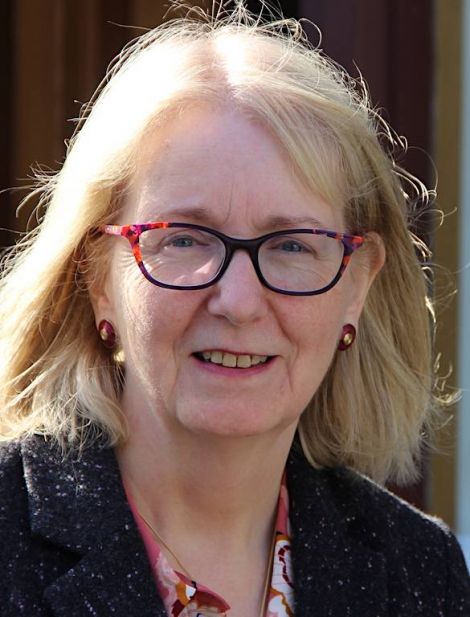Community / Scale of fuel poverty compounded by Covid pandemic with little help in sight
AS ENERGY prices are set to rise again this spring and many families finding it hard to make ends meet as a result of the Covid-19 pandemic, more islanders are falling into fuel debt, Citizens Advice Bureau (CAB) have said.
Figures released by the local CAB office show that over recent months 42 local households have been referred for emergency fuel vouchers or to the Scottish Welfare Fund for crisis grants.
Officer manager Karen Eunson said the cost of heating continues to be a major issue and many people are finding it difficult to heat their homes.
Recent figures from Shetland Islands Council highlight the scale of the challenge: while more than 20 per cent of the population live in ‘extreme fuel poverty’, where families are spending more than a fifth of the income on keeping their homes warm, household energy bills in the isles are typically over £2,000 per annum, and regularly over £3,000.
While this is not a new issue, the pandemic has further compounded the crisis, those dealing with the worst cases have said.
“This year households are under extra pressure as a result of the pandemic with some seeing a drop in income due to job loss or reduced hours, and many facing higher energy bills due to more time spent at home,” Eunson said.
Aside from giving general advice on energy bills, CAB also supports people to apply for the warm home discount that gives £140 off energy bills over the winter, Eunson added.
These latest figures come after all three Northern Isles parliamentarians wrote to Scottish local government secretary Aileen Campbell quizzing her why the government has paused work on completing a Scottish Fuel Poverty Strategy.
Become a member of Shetland News
It emerged last week in an answer to written questions by Orkney MSP Liam McArthur that the fuel poverty strategy, which was originally due to be published in September last year, was halted at the start of the pandemic in March and remains on hold.
Housing minister Kevin Stewart said: “Since then my officials have been focused on the immediate support needs of those facing difficulties in meeting fuel costs during the pandemic, including most recently disbursing £7 million of funding as part of the winter support fund announced by the first minister late last year.”
Shetland MSP Beatrice Wishart said: “We urgently need some clarity from the government on how they plan to tackle the high levels of fuel poverty in communities like Shetland.
“The current plan of attack from the government is to pause the central piece of work which would help those in the long term.
“We are in the midst of a cold winter and many families that would struggle in the best of times are being hit further due to the pandemic. Keeping this work on ice and not putting proper investment into this issue is not justifiable.”
Meanwhile, in an updated corporate plan for the years 2021 to 2026 which was published in December, Shetland Islands Council acknowledged that despite Shetland’s location in the middle of large oil and gas reserves, islanders have to pay some of the highest energy costs in the UK while a large proportion of the population suffers from fuel poverty.
The authors of the report concede that despite the fact that a large renewable energy project is in the process of being built, nothing is to change on local fuel bills.
“Although their output will significantly exceed Shetland demand and large volumes of electricity will be exported to the mainland, many islanders will still find themselves trapped in fuel poverty and business competitiveness will still be damaged by high energy costs,” the report said.
In response to their own analysis the council promises to campaign to “ensure that regulations and arrangements allow Shetland-generated green energy to be made available to Shetland consumers and industries at affordable prices to close the current energy affordability gap.
“Developing new and innovative arrangements where renewable energy generated in the islands, in particular electricity, could be consumed locally at affordable prices could transform the fuel poverty levels in the islands,” the council said.
“We believe that could create a solution with significant economic, commercial and social benefits for communities, business and government and provide a much-needed growth stimulus for the islands at a very concerning transition point for the oil and gas industry.”
For the time being, however, advice from the Citizens Advice Bureau will prove to be the only help available to struggling islanders.
“We have no silver bullet to solve fuel poverty in Shetland,” Eunson said. “People have limited options in terms of switching; there is no mains gas; many local homes are hard to heat; our climate is harsh; and electricity costs are significantly higher than on the mainland and energy prices are set to rise again from 1 April.
“But CAB energy advisers give tailored support to households which includes ways to reduce energy costs, as well as to increase household income through financial checks and help to apply for benefits and other financial support.”
Anyone seeking energy advice can contact Shetland CAB on 01595 694696 or by emailing sicab@shetland.org
Become a member of Shetland News
Shetland News is asking its readers to consider paying for membership to get additional perks:
- Removal of third-party ads;
- Bookmark posts to read later;
- Exclusive curated weekly newsletter;
- Hide membership messages;
- Comments open for discussion.
If you appreciate what we do and feel strongly about impartial local journalism, then please become a member of Shetland News by either making a single payment, or setting up a monthly, quarterly or yearly subscription.













































































